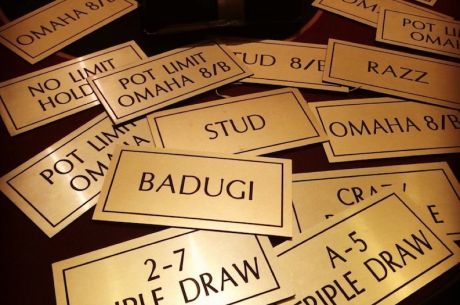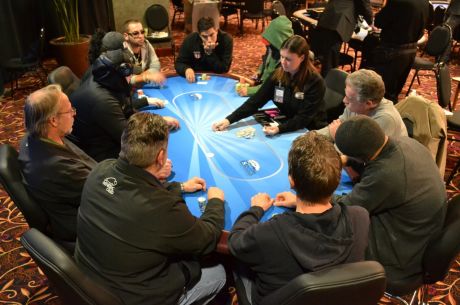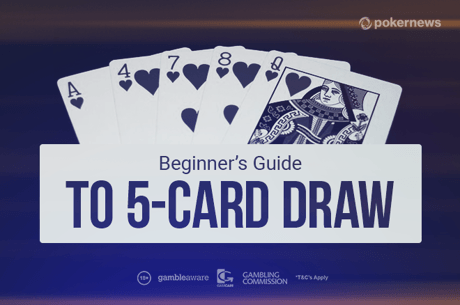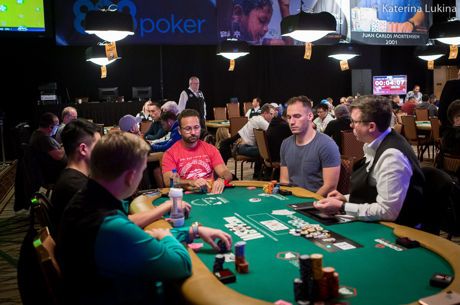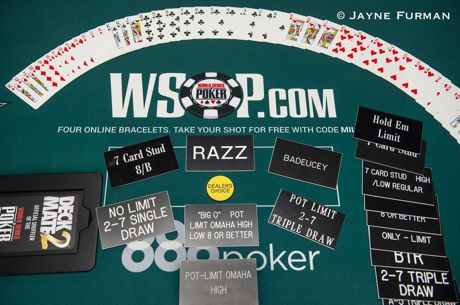Negreanu on Twitch: Five Helpful Tips for Improving Your Mixed Games Play... In Bed

You might be familiar with a long-running joke that involves reading aloud what’s printed on the slip of paper found inside a fortune cookie, followed by the words “in bed.” Sometimes, the outcome is nonsensical; at other times the result can be a highly humorous expression laced with sexual innuendo:
You will meet hundreds of people… in bed.
Nothing great was ever achieved without enthusiasm… in bed.
People rise to your expectations… in bed.
Negreanu wins $50K playing mixed games… in bed.
By now, you’ve probably heard the news that Daniel Negreanu made his real-money Twitch debut a little over a week ago, and ultimately walked away with a $50K profit after his online PokerStars session in which he played a high-stakes cash game while in bed — and that is no joke.
Negreanu took that opportunity to introduce those watching to the world of mixed games, playing the 8-game mix at $400/$800 limits against the likes of fellow professional poker players Matthew Ashton, Ben Sulsky, and Luke Schwartz. Games in the 8-game mix include no-limit hold’em, pot-limit Omaha, deuce-to-seven triple draw, limit hold’em, limit Omaha hi/lo, razz, seven-card stud, and seven-card stud hi/lo.
During the session, Negreanu professed his love for mixed games, encouraging viewers to “venture out and learn some of the other games rather than just hold’em” while pointing out all of the non-hold’em offerings at the upcoming World Series of Poker. Learning all the games is “what it really takes to become a great all-around poker player,” suggests Negreanu, echoing a sentiment shared by many other pros. He also observed that a number of younger players have already recently begun to branch out beyond hold’em and even pot-limit Omaha, and are playing mixed games.
Those who tuned into the live stream expecting Negreanu to expose all his mixed game secrets might have left somewhat disappointed, given that most of the discussion was at an introductory level. That’s not to say it isn’t worth going back to watch if you missed it the first time, as most would agree that between the live washroom “episodes,” poker celebrity impersonations, riddles, and war stories, the session was highly entertaining and at times even informative, especially for those new to mixed games.
In case you missed it, here are some basic tips we’ve compiled based on the session, to help you out if you are starting to learn mixed games:
1. In stud games, pay attention to the cards that have been dealt to each player.
In the stud games — seven-card stud, seven-card stud hi/lo, and razz — the exposed cards will frequently dictate what hands you will play at the outset. For example, in stud if you are holding a pair, but both remaining cards of the same rank can no longer be drawn because they have already dealt to your opponents, your pair loses much of its value since it is now impossible to make three of a kind. In particular, if your pair is not very good, you should seriously consider folding.
Furthermore, exposed cards can also give you a hint as to what type of hand your opponents might be holding. For instance, in stud if an opponent is showing two upcards of the same suit on fourth street and becomes aggressive, and you notice there are very few exposed cards in that suit, there is a greater chance the player is aggressively playing a flush draw. This information can be helpful when you are trying to decide how to proceed on later betting rounds.
2. A pair of aces is not as strong of a starting hand in seven-card stud as it is in hold’em.
Being dealt a pair of aces among your first three cards in seven-card stud is certainly a good start, but your hand is not as strong as most hold’em players would like to think. For example, while in hold’em a pair of aces can be greater than a 4-to-1 favorite over a lesser pocket pair like QxQx, it may only be about a 65% favorite in stud.
Beginning with two aces still represents a good starting hand in stud, but one that would welcome further improvement since it is not uncommon for a starting hand that contains a pair of queens to overtake the aces by making two pair while the aces fail to improve.
3. In deuce-to-seven triple draw, having extra deuces adds value to a starting hand.
In 2-7 triple draw, your starting hand becomes more valuable if you hold more than once deuce in your hand. For example, a hand such as 8x3x2xXxXx is stronger if you are discarding a duplicate deuce, since the removal of a second deuce from the deck makes it more difficult for your opponents to have or improve to a strong hand.
If the decision over whether or not to play a given hand is a borderline one, you might lean toward playing the hand after having seen the extra deuce.
4. In 2-7 triple draw, avoid starting hands that tend to make straights.

Two-card draws — that is, starting hands where you intend to keep three cards and draw two — are considerably weaker if the three cards you are keeping are not only mid-ranked but are also connected. In other words, stay away from marginal starting hands that are effectively straight draws (e.g., 6x5x4xXxXx), as the quality of your hand will be significantly diminished.
Remember both straights and flushes count against 2-7 triple draw hands.
5. Don’t be afraid to attempt a steal in razz when everyone has folded to you and you are heads-up against the bring-in.
In razz, if you show a low upcard and everyone folds to you, a steal can often succeed even if your actual hand is not very good.
For example, a hand with a pair is generally not a good starting hand in razz, but if all players fold to you and you show a low card versus a high-ranked card of the bring-in, nobody will know that you have a poor hand and your opponent will often fold if you complete.
If you’re interested in viewing a replay of Negreanu’s April 20 broadcast or others, make sure to check out the “Past Broadcasts” section of . Access is free.
Ken Lo is the author of . He is based in Toronto, Canada. Follow him on Twitter .
Want to stay atop all the latest in the poker world? If so, make sure to get PokerNews updates on your social media outlets. on Twitter and find us on both and !

